Filter by

War And Peace in The Western Political Imagination
The study of war in all periods of prehistory and recorded history has always commanded the attention of historians, dramatists, poets and artists. The study of peace has, however, not yet gained a comparable readership, and the subject is attracting an increasing amount of scholarly research. This volume presents the first work of academic research to tackle this imbalance head on. It looks at…
- Edition
- -
- ISBN/ISSN
- 9781474258722
- Collation
- -
- Series Title
- -
- Call Number
- -
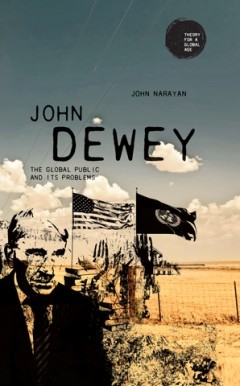
John Dewey : The Global Public and its Problems
"This book argues that John Dewey should be read as a philosopher of globalization rather than as a 'local' American philosopher. Although Dewey's political philosophy was rooted in late nineteenth and early twentieth century America, it was more importantly about the role of America in a globalized world. In returning to, and recovering the neglected global dimensions of Dewey's political phil…
- Edition
- -
- ISBN/ISSN
- 9781526101020
- Collation
- xii, 192 p.
- Series Title
- -
- Call Number
- 320.01 JOH J
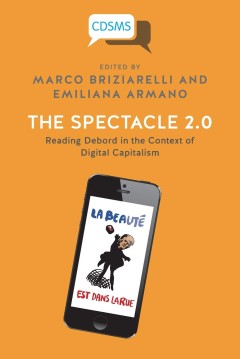
The Spectacle 2.0 : Reading Debord in the Context of Digital Capitalism
Spectacle 2.0 recasts Debord's theory of spectacle within the frame of 21st century digital capitalism. It offers a reassessment of Debord’s original notion of Spectacle from the late 1960s, of its posterior revisitation in the 1990s, and it presents a reinterpretation of the concept within the scenario of contemporary informational capitalism and more specifically of digital and media labour…
- Edition
- -
- ISBN/ISSN
- 9781911534464
- Collation
- xi, 252 p.
- Series Title
- -
- Call Number
- 303.484 SPE E
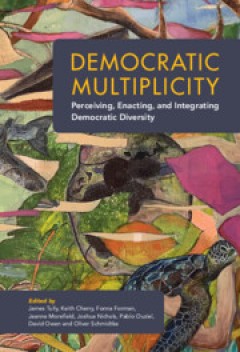
Democratic multiplicity : perceiving, enacting and integrating democratic div…
This edited volume argues that democracy is broader and more diverse than the dominant state-centered, modern representative democracies, to which other modes of democracy are either presumed subordinate or ignored. The contributors seek to overcome the standard opposition of democracy from below (participatory) and democracy from above (representative). Rather, they argue that through differen…
- Edition
- -
- ISBN/ISSN
- 9781009178372
- Collation
- xxi, 426p.
- Series Title
- -
- Call Number
- 321.8 DEM e
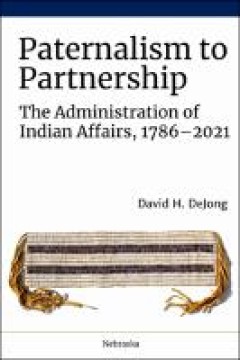
Paternalism to partnership : the administration of Indian affairs, 1786-2021
Paternalism to Partnership examines the administration of Indian affairs from 1786, when the first federal administrator was appointed, through 2021. David H. DeJong examines each administrator through a biographical sketch and excerpts of policy statements defining the administrator’s political philosophy, drawn from official reports or the administrator’s own writings. The Indian Offic…
- Edition
- -
- ISBN/ISSN
- 9781496230584
- Collation
- xvii, 476 p.
- Series Title
- -
- Call Number
- 323.1197 DEJ p
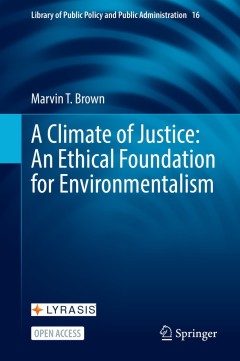
A climate of justice: An ethical eoundation for environmentalism
This open access book helps readers combine history, politics, and ethics to address the most pressing problem facing the world today: environmental survival. In A Climate of Justice, Marvin Brown connects the environmental crisis to basic questions of economic, social, and racial justice. Brown shows how our current social climate maintains systemic injustices, and he uncovers resources for ch…
- Edition
- -
- ISBN/ISSN
- 9783030773632
- Collation
- xix, 185p ; ill
- Series Title
- -
- Call Number
- 179.1 BRO a
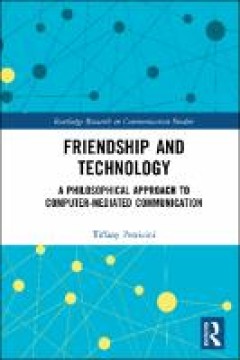
Friendship and technology : a philosophical approach to computer mediated com…
This book explores the nature of technology – participatory media in particular – and its effects on our friendships and our fundamental sense of togetherness. Situating the notion of friendship in the modern era, the author examines the possibilities and challenges of technology on our friendships. Taking a media ecology approach to interpersonal communication, she looks at issues around p…
- Edition
- -
- ISBN/ISSN
- 9781003188810
- Collation
- xi, 156 p. : ill
- Series Title
- -
- Call Number
- 158.25 PET f
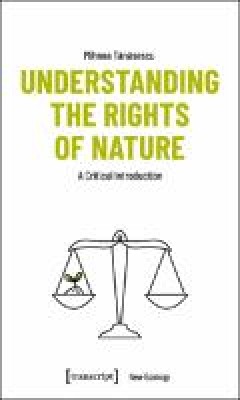
Understanding the Rights of Nature : A Critical Introduction
Rivers, landscapes, whole territories: these are the latest entities environmental activists have fought hard to include in the relentless expansion of rights in our world. But what does it mean for a landscape to have rights? Why would anyone want to create such rights, and to what end? Is it a good idea, and does it come with risks? This book presents the logic behind giving nature rights and…
- Edition
- -
- ISBN/ISSN
- 9783837654318
- Collation
- 168 p.
- Series Title
- -
- Call Number
- 300 TAN u

No truth without beauty : god, the Quran, and women's rights
In this comprehensive open access book, written for readers from any or no religious background, Leena El-Ali does something remarkable. Never before has anyone taken on every last claim relating to Islam and women and countered it not just with Qur’anic evidence to the contrary, but with easy-to-use tools available to all. How can a woman’s testimony be worth half of a man’s? How can men…
- Edition
- 4
- ISBN/ISSN
- 9783030835828
- Collation
- xxxii, 306 p.
- Series Title
- -
- Call Number
- 297.082 ELA n
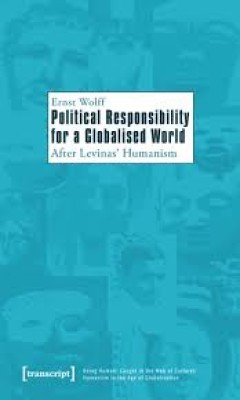
Political responsibility for a globalised world: after levinas' humanism
The aim of this book is to reflect on the complex practice of responsibility within the context of a globalised world and contemporary means of action. Levinas' exploration of the ethical serves as point of entry and is shown to be seeking inter-cultural political relevance through engagement with the issues of postcoloniality and humanism. Yet, Levinas fails to realise the ethical implications…
- Edition
- -
- ISBN/ISSN
- 9783839416945
- Collation
- 283 p.
- Series Title
- -
- Call Number
- 320.01 WOL p
 Computer Science, Information & General Works
Computer Science, Information & General Works  Philosophy & Psychology
Philosophy & Psychology  Religion
Religion  Social Sciences
Social Sciences  Language
Language  Pure Science
Pure Science  Applied Sciences
Applied Sciences  Art & Recreation
Art & Recreation  Literature
Literature  History & Geography
History & Geography